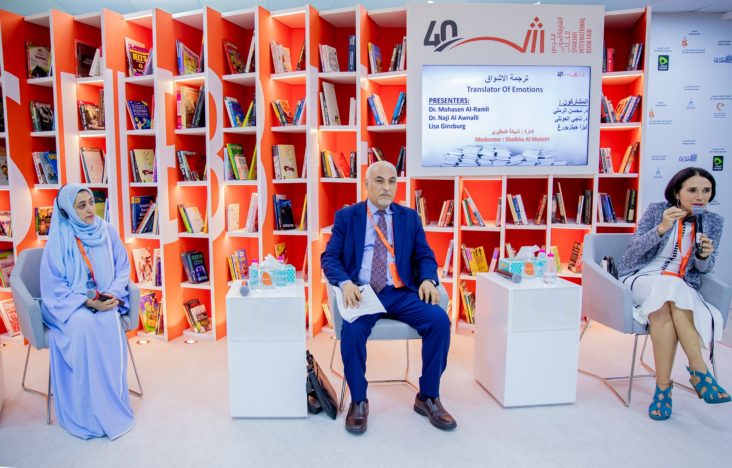Translation Revitalises Literatures Of The World, Say Experts At SIBF 2021

“A translator straddles two worlds; you have to function as two individuals at the same time,” said Lisa Ginzburg, Italian author and translator, at a panel discussion held at the 40th Sharjah International Book Fair, where she explored some of the key challenges involved in literary translation in a discussion with Dr. Mohsen Al-Ramli, Iraqi-Spanish writer, academic, scholar and poet.
“In the first phase, the translator must immerse himself/herself in the layers of meaning and be one with the voice of the original author while in the second phase, a translator must embellish the language to give it an individual treatment and elevate it both linguistically and aesthetically,” said Ginzburg, as she emphasised the importance of becoming one with the voice of the original writer to do justice to the work.
The session titled, ‘Translator of Emotions’, was moderated by Shaikha AlMutairi, and outlined the growing importance of translated works in the modern world.
“Translation has a unique character. Even though the text remains static, every translator brings his own style to the narrative, creating something distinctive that evokes the same feelings as that of the original,” said Dr. Al-Ramli, who called on Arab publishers and writers to inscribe the names of translators on book covers.
A translator is a co-author who inhabits the world of the characters created by another writer, he added. “Critics scrutinise and are harsh on literary translators, but you never hear criticisms levelled against translations of scientific works.”
He added: “Previously, it used to be said that one must be a master of two languages to translate from one to the other, but I believe it is more important to be a master of both cultures to understand the nuances of cultural aspects implicit in the source text, and to convey it appropriately in the target language.”
The experts pointed out that important works of literature must be re-translated periodically, as time and current realities reflect the way a work is interpreted, creating a new layer of understanding and perspective.They also cited the challenges involved in translating a language with a rich and extensive vocabulary, such as Arabic, into one with a limited repertoire of words.
Highlighting the importance of books in advancing literacy, and the role of translation in revitalising literature, Dr. Al-Ramli concluded: “It is better to know a work through a poor translation than not know it at all.”

